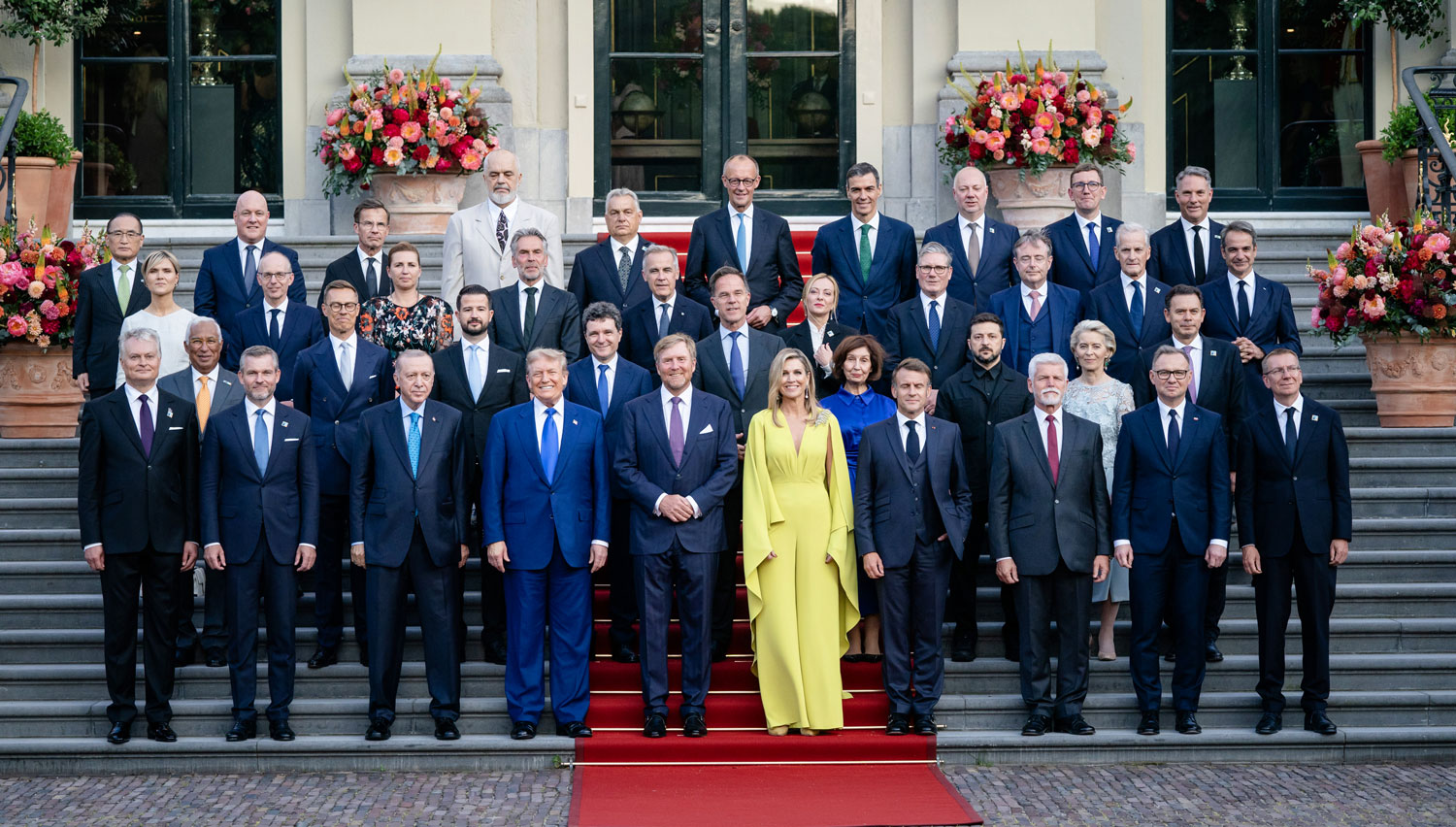At the NATO summit in The Hague on 25 June, European leaders chose silence, flattery, and submission to avoid offending Donald Trump — a decision Bloomberg columnist Max Hastings believes was driven by one desperate objective: keeping US arms flowing to Ukraine.
Flattery as survival tactic
According to the Bloomberg piece, the entire summit revolved around not provoking Trump. The meeting “made little pretense of discussing global strategy,” Hastings writes, and was instead about “preventing the most impulsive and erratic US president in history from throwing NATO’s toys out of his pram.” NATO Secretary-General Mark Rutte praised Trump’s “decisive action” in Iran and even sympathized with his “public use of four-letter language,” signaling the tone.
Every leader in the room, Hastings notes, played along — even as Trump claimed that recent US-Israeli strikes had set back Iran “by decades,” a statement none reportedly believed. Their silence wasn’t weakness, Hastings argues, but a calculated move to avoid triggering Trump’s unpredictable anger — because Ukraine’s survival may depend on it.
Zelenskyy’s lifeline in danger
Trump has already suspended arms deliveries to Ukraine once. Hastings warns he might do so again at any moment. Ukraine survives “only at his pleasure,” he states.
Russian forces are escalating ground offensives and intensifying attacks on cities. As air-defense systems deplete, Ukraine faces critical shortages. Hastings says Ukrainian morale could collapse if they lose the means to repel Russian terror strikes.
The problem, he explains, is that Europe can’t replace what the US provides. If Washington doesn’t act — if Trump cuts Ukraine off again — the consequences may be dire.
European submission to an unpredictable partner
All NATO allies understand this. The Bloomberg piece describes the summit as a performance of submission — not to Russia, but to the United States. European nations, including Germany and the UK, are boosting defense spending and offering gestures of solidarity. Germany plans to spend €62.4 billion in 2025. Chancellor Friedrich Merz insisted in parliament:
“We are not doing that as a favor to the US and its president… because Russia is actively and aggressively endangering the security and freedom of the entire Euro-Atlantic area.”
A necessary humiliation
Despite their discomfort, no leader pushed back publicly. Hastings argues this silence may be shameful, but it is strategic.
“Those of us who don’t hold public office,” he writes, “seem to have a responsibility to be frank.”
In conclusion, Hastings believes Europe must continue this game of appeasement. It may cost dignity and self-respect. But if it helps Ukraine hold the line, he argues, it might be a price worth paying.
Read also
-
Frozen conflict Ukraine’s “best case scenario” because Russia has nukes, Kurt Volker says
-
“We chose not to win”: How the West abandoned Ukraine’s victory plan
-
NATO Summit with US participation recognises Russia as long-term threat to entire Alliance
-
Trump says NATO meeting was “nice.” Zelenskyy wore a suit. The war goes on




